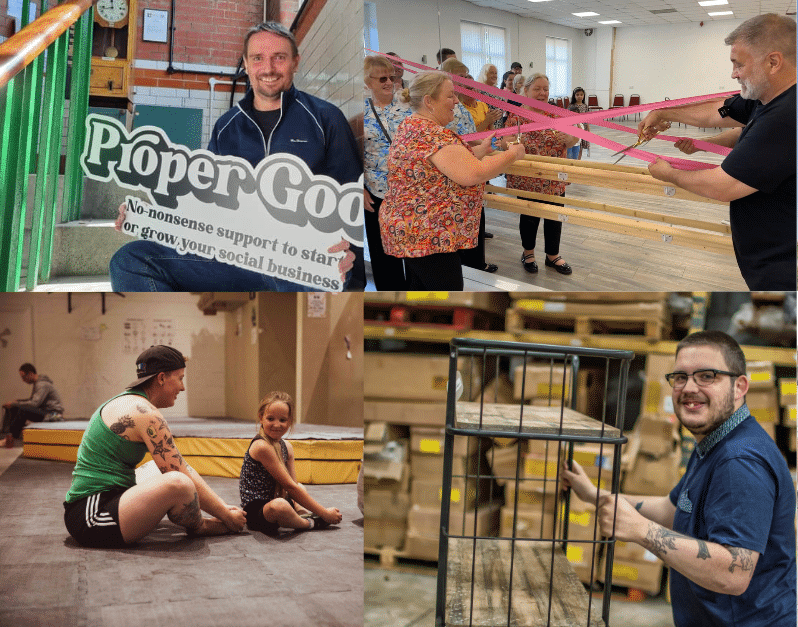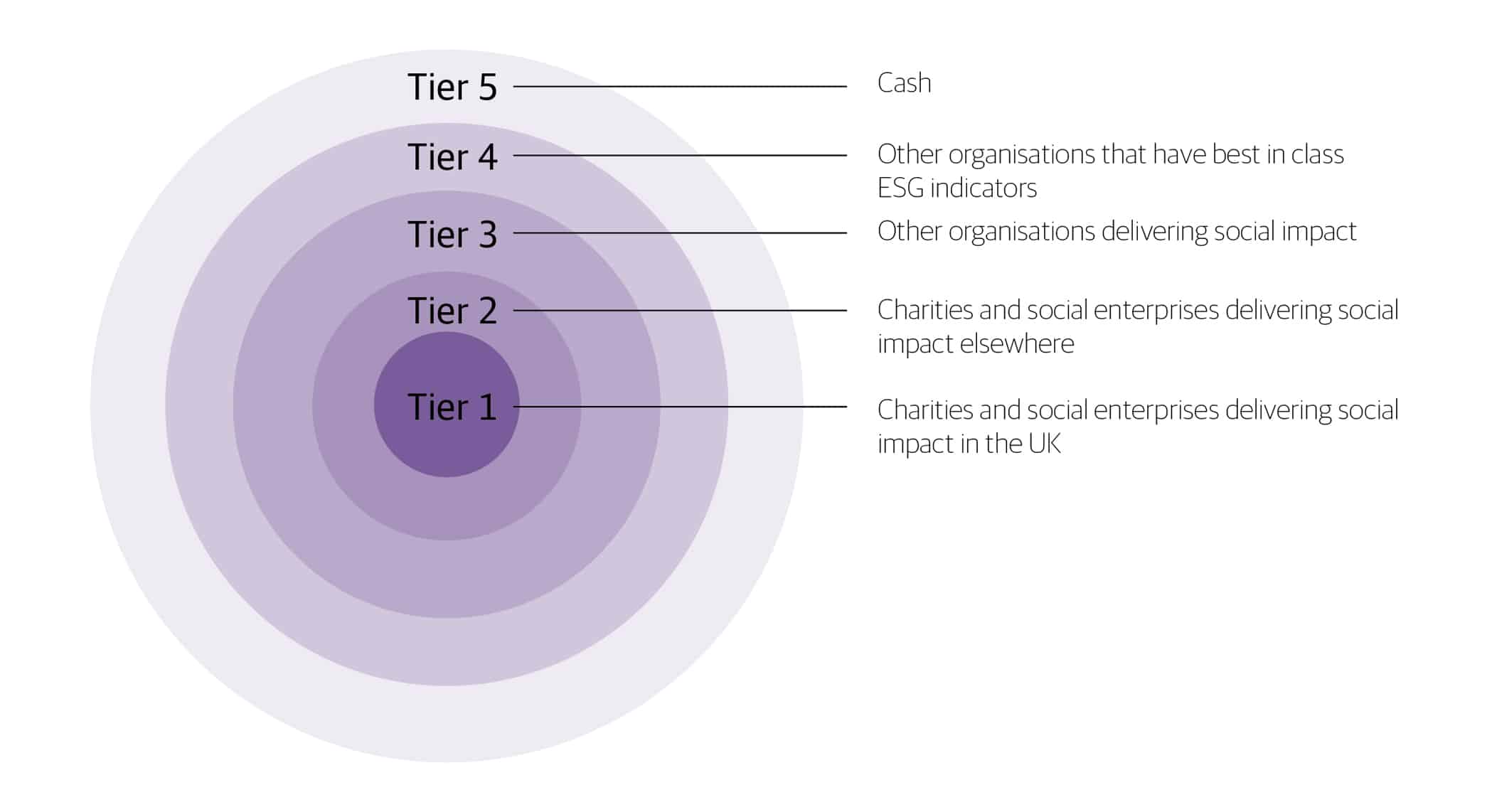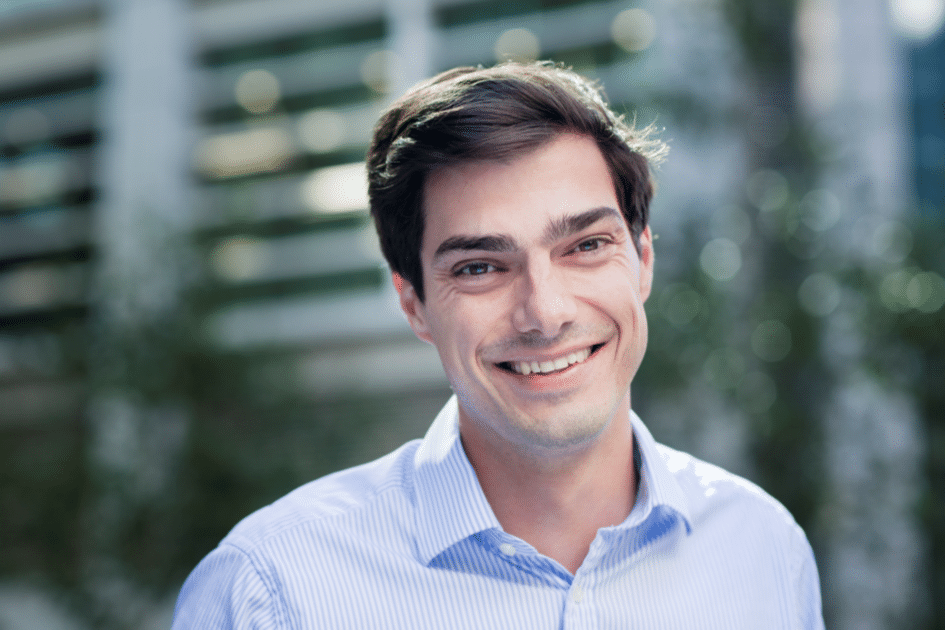Following a successful pilot, the Enterprise Development Programme (EDP) will reopen in the New Year, and will expand to be able to support charities and social enterprises operating in the mental health and equality sectors, in addition to those working in homelessness and youth.
The EDP is led by a partnership of national infrastructure bodies seeking to support the development of enterprise models in charities and social enterprises working certain thematic sectors. It has been developed and is funded by Access – The Foundation for Social Investment. Social Investment Business provide a management role for the overall programme.
The EDP provides a broad range of support, helping organisations to establish new enterprise models, or grow existing ones. It offers a combination of cohort based peer learning opportunities, training, direct advice and support, as well as grants to research or test out new ideas, to launch new enterprises or grow existing ones.
It will open to new applications for charities and social enterprises in the four sectors from January 2020. More information is available at [www.enterprisedevelopmentprogramme.org.uk].
Over the last year Access has been working with Homeless Link and the Centre for Youth Impact, along with other partners, to pilot the EDP approach. The programme supported over 140 organisations across the two sectors with learning programmes and grants.
As part of the pilot, North East Homeless was a recipient of a feasibility grant to test the idea of developing a container village to house their own services and lease space for other community groups to use. Emma Burridge, a trustee of the charity, said:
“We need to find new ways of funding as our charity is expanding rapidly and we want to be sustainable so we can support as many people as we can. Social enterprise seemed a good route to do this… Through our plans we can make North East Homeless grow, and the people who use our services can know that we will be here into the future.”
The pilot has demonstrated the value of a sector based approach when focusing on developing enterprise models. This has included being able to reach more deeply into parts of the sector and building a stronger knowledge base around the sorts of enterprise models which are best suited to that sector.
Access’s Director of Programmes, Neil Berry, said:
“We have learned a lot from the pilot year of EDP. The sector based approach works in making enterprise based solutions more relevant to more organisations who haven’t been able to consider it before. We have also learned that organisations most benefit when their support package is based on their specific needs. Going forwards the EDP will be able to better tailor support for each organisation on the programme.”
Access has selected the Association of Mental Health Providers and Equally Ours to join the EDP partnership, expanding the programme to the mental health and equality sectors. These two sectors were chosen because of the potential for enterprise models to develop and the strength of their national infrastructure. The choice of the equality sector was also influenced by the work of the Equality Impact Investing project and Access’s wish to support equality and diversity across all its work. Each sector will be supported through the EDP for up to three years and will each have a budget of around £2m.
Chief Executive of Equally Ours, Ali Harris, said:
“In these challenging times it’s vital that equality organisations have the chance to become more enterprising and increase their financial resilience, so they’re better able to help people and create social change. But many equality organisations are already over-stretched. They don’t have the capacity or support they need to work though options, try things out, learn and keep developing. Equally Ours is delighted to be working with Access and our partners on the Equality EDP, as it will provide this much-needed capacity and support. Crucially, it will also share learning to help the broader social investment community maximise their potential to increase equality in the UK.”
Chief Executive of Association of Mental Health Providers, Kathy Roberts, said:
“We are delighted that Access have expanded the Enterprise Development Programme to include the mental health sector and we welcome the opportunity to develop the Programme as sector leads. The profile of mental health is rising both in policy and public awareness, and the voluntary and community sector plays a key role in the provision of services in the community. The funding environment for VCSE providers can be challenging and there is significant value in exploring how income streams could be successfully diversified through the EDP and we are keen that organisations consider sustainable solutions, which deliver positive outcomes for people with mental health needs .”
To provide strategic grant management support to the programme, Access has selected Social Investment Business (SIB) as a strategic partner following a competitive tender process. SIB will support each of the sector partners in working with applicants to the programme and will provide overall programme and grant management.
Deborah Smart, Head of Grants Programmes at Social Investment Business, said:
“At Social Investment Business, our strategy is all about how we strengthen and build organisation’s resilience through providing the right finance and support to help them thrive. We are also committed to working in collaboration, and are therefore delighted to be expanding and extending our partnership with Access on the Enterprise Development Programme. We look forward to supporting and strengthening the enterprise activity of our first EDP cohort and beyond.”
The EDP is one of Access’s core programmes, along with the Reach Fund which supports investment readiness work, and the Growth Fund, a £50m blended finance programme which, through 15 partners, has supported almost 400 charities and social enterprises to access small scale unsecured loans.













